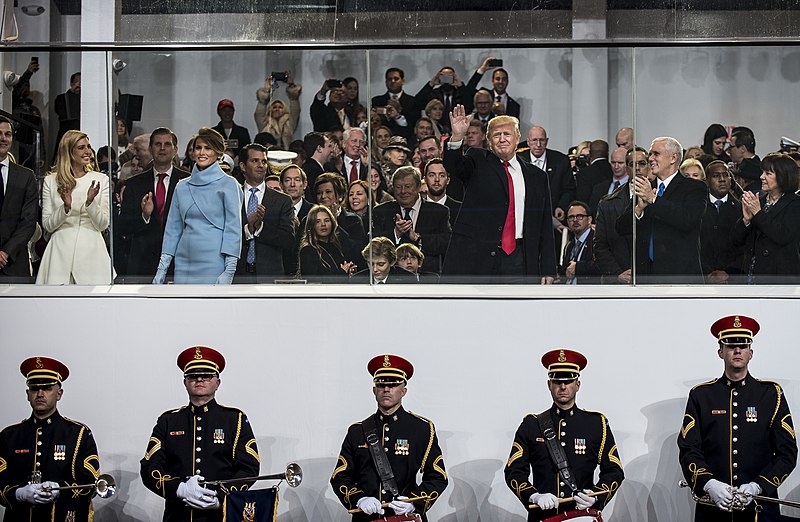
With the US occupation of Afghanistan well into its sixteenth year and the country no closer to becoming a stable democracy than it was in late 2001, Antiwar.com reports that this isn’t an “all options are on the table” scenario.
President Donald Trump seems to have rejected the idea of withdrawing US troops and ending the war. Instead, he intends to become the third president in a row to roll the dice on a “surge” — that is, to send in more troops (the initial estimate is anywhere from 3,000 to 5,000 more in addition to the current 8,400) and hope for the best.
That idea has never worked before and it’s not going to magically start working now. If Trump can’t bring himself to put an end to America’s Afghanistan misadventure, Congress should force him to do so by either repealing its “Authorization for the Use of Military Force” or using its power of the purse to cut off funding for military operations in Afghanistan.
The US invasion and occupation of Afghanistan has been nothing but epic fail from the very beginning.
First, it was quite likely unnecessary. After the 9/11 attacks — carried out by terrorists from Saudi Arabia, the United Arab Emirates, Egypt, and Lebanon — president George W. Bush demanded that Afghanistan’s Taliban rulers hand over Saudi national Osama bin Laden. The Taliban offered to remand him to a third, neutral country upon the presentation of evidence, even though they were under no obligation to do so in the absence of an extradition treaty. Rather than proffer the requested evidence, Bush chose war.
Secondly, instead of invading, finding, and capturing or killing bin Laden and coming home, the troops were set to play at the game of “nation-building.” While they toppled the Taliban regime and began setting up what they hoped would become a western-style democracy instead of immediately going after bin Laden in the caves of Tora Bora, he and his compatriots made their escape over the border into Pakistan. It was nearly another decade before bin Laden was hunted down and assassinated.
Finally, even after it became clear that the forces which denied the Soviets victory in a decade-long war from 1979-89 could and would do the same versus US forces, first Bush and then Barack Obama just kept doubling down, pouring American blood and treasure by the gallon into soil from which peace and democracy refused to sprout. Trump apparently wants to go down in history as Afghanistan failmaster number three.
The US occupation will never achieve its purported goals. If Afghanistan is going to change, it will be the Afghans who change it. They’re not interested in being told how to live by Russians, by Americans, or by anyone else. Can’t say as I blame them.
This column is dedicated to the memory of R. Lee Wrights (1958-2017)
Note: The original version of this column claimed that the Taliban offered to hand Osama bin Laden over to the US on presentation of evidence implicating him in the 9/11 attacks. In fact, the Taliban’s offer was to hand bin Laden over to a “third party” country. Thanks to Jacob Hornberger for the correction.
Thomas L. Knapp (Twitter: @thomaslknapp) is director and senior news analyst at the William Lloyd Garrison Center for Libertarian Advocacy Journalism (thegarrisoncenter.org). He lives and works in north central Florida.
PUBLICATION HISTORY
- “Congress Should Just Say No to Trump’s Afghanistan Surge,” by Thomas L. Knapp, Ventura County, California Citizens Journal, 05/09/17
- “Congress Should Just Say No to Trump’s Afghanistan Surge,” by Thomas L. Knapp, Antiwar.com, 05/10/17
- “Congress Should Just Say No to Trump’s Afghanistan Surge,” by Thomas L. Knapp, CounterPunch, 05/10/17
- “Congress Should Just Say No to Trump’s Afghanistan Surge,” by Thomas L. Knapp, OpEdNews, 05/10/17
- “Congress should just say no to Trump’s Afghanistan surge,” by Thomas L. Knapp, Newberry, South Carolina Observer, 05/10/17
- “Congress should just say no to Trump’s Afghanistan surge,” by Thomas L. Knapp, Sonoran News, 05/11/17
- “Congress Should Just Say No to Trump’s Afghanistan Surge,” by Thomas L. Knapp, Key West: The Newspaper [Florida], 05/12/17


